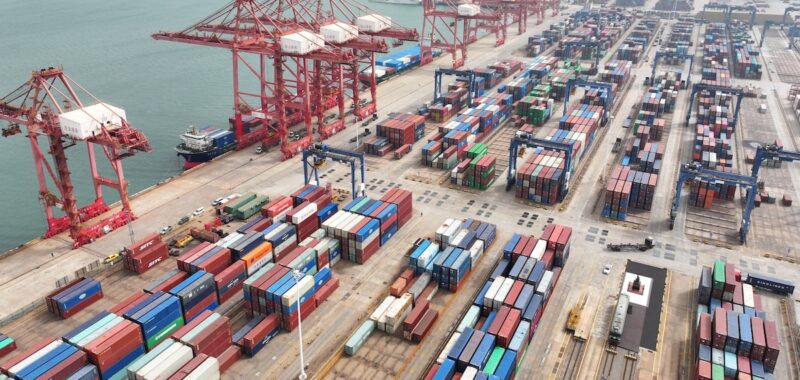
China vowed to use its big market to help companies cope with âexternal shocksâ â a sign officials are eager to ensure exporters navigate the trade conflict with the US.
âThe domestic market offers strong backing for enterprises involved in foreign trade,â the Commerce Ministry said in a statement on Friday, citing a meeting in Beijing attended by vice minister Sheng Qiuping.
The nation needed to âgive better play to the advantages of the super-large-scale market,â the ministry said, and also to âpromote the combination of stabilising foreign trade and expanding consumption.â
The meeting comes as major e-commerce platforms like JD.com Inc., Alibaba Group Holding Ltd. and Tencent Holdings Ltd. announce programs aimed at helping exporters expand domestically. JD.com said it would buy no less than a 200 billion yuan ($27.4 billion) worth of products from exporters to help them sell at home over the coming year.
Getting the nationâs consumers to pick up the slack from lost American business will likely be difficult to do. Business confidence and consumer sentiment remain wobbly in China, and a weak job market has many people worried about spending.
Also, excess capacity in some industries has fuelled ruthless price competition, worsening deflationary pressures on the economy.
The Commerce Ministry said earlier it would help industry associations, supermarkets and e-commerce platforms cooperate with exporters to overcome challenges.
On Sunday, it launched a campaign in the southern province of Hainan to promote domestic sales of goods originally made for export. It involves trader groups in sectors such as mechanical and electrical products, textiles, food, metals, minerals, chemicals and health care. The ministry said it plans to expand the project in 10 provinces.
Chinese exporters have already taken to social media to advertise steep discounts on products originally made to sell overseas, saying inventories are growing because US buyers canceled orders.
By Bloomberg News
Learn more:
Report: China Advises Shein Against Shifting Supply Chain
The fast-fashion retailer is facing opposition from the Chinese government over its plans to shift some production out of the country, Bloomberg News reported on Tuesday.

